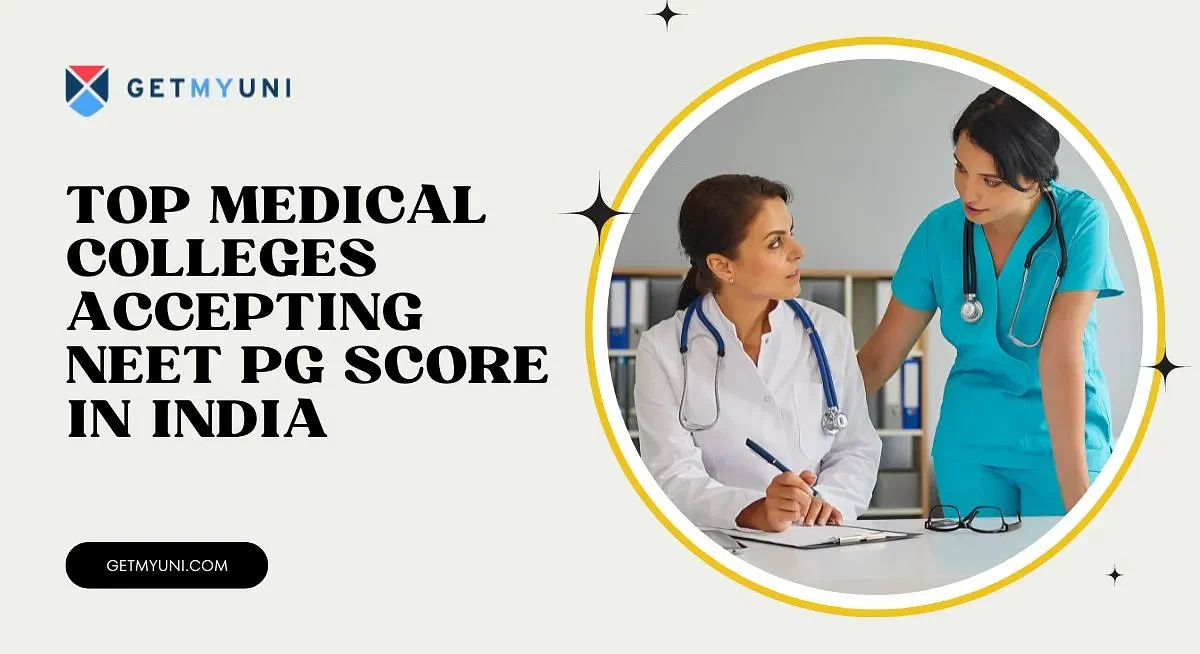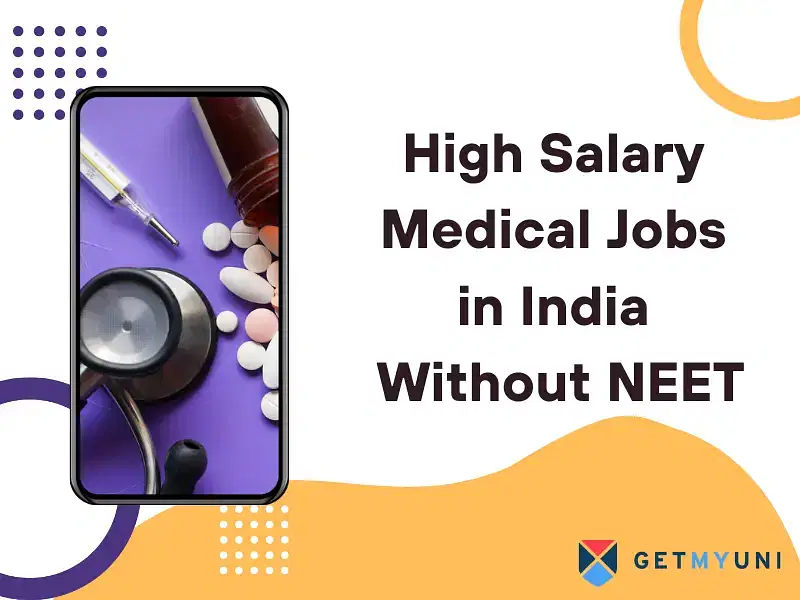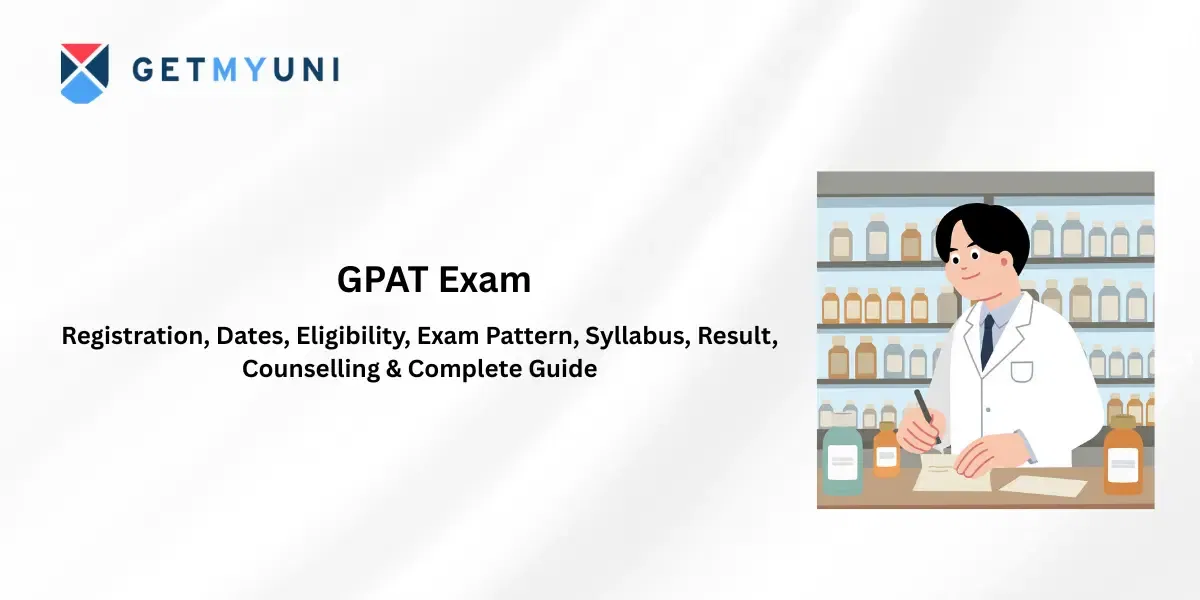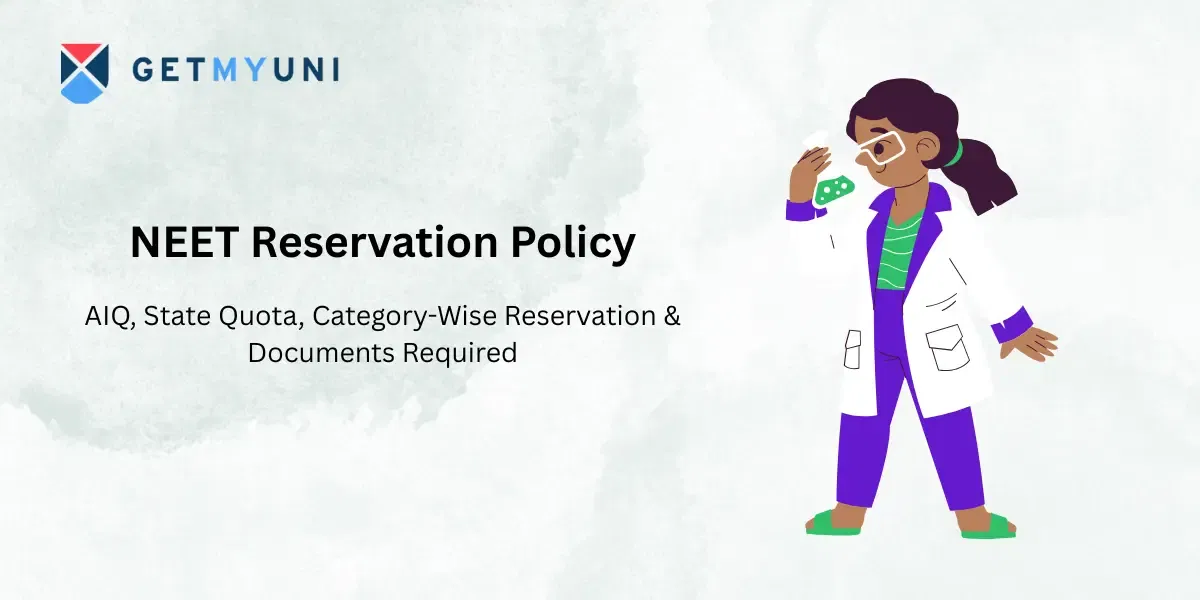Wondering about best nursing courses after 12th in India? Read this article to know about the eligibility criteria, top nursing schools, and much more.
Table of Contents
Nursing Courses after 12th: Students aiming for a career in the medical field are often stuck with a lucrative dream of MBBS, and due to this, many students tend to move away from their goals. Apart from regular degrees, students can also opt for nursing, which aligns with a similar field of study.
Nursing is one of the noblest and oldest professions; it involves dedicating oneself to sick and peaked patients. It's a mixture of providing physical healing whereas additionally providing mental support to patients and their families.
Let us discuss some of the top nursing courses after 12th, along with their scopes and eligibility.
Nursing Courses After 12th
After 12th, there are pretty standard questions among students like "Can I do the Nursing course after 12th" or "Can I choose among any significant subjects. "Luckily, the nursing courses after 12th are pretty popular in India. There are many opportunities available, and the most preferred among these opportunities are diploma-level nursing courses, explained in detail.
- Auxiliary Nurse and Midwife course
- General Nursing and Midwifery
- B.Sc in Nursing
- B.Sc in Community Health Nursing
- B.Sc in Mental Health Nursing
- B.Sc. in Obstetrics and Gynaecology
- Diploma in Ayurvedic Nursing
- Disaster Medicine Training
- Diploma in Nursing Care Assistant
- Diploma in Nursing
- Certificate Course in Essentials of Cardiology
- Certificate Course in Wellness Coaching
- Certificate Course in Home-Based Care Helper
- Certificate Course in Nursing Administration
- Certificate Course in Nursing Care Assistant
- Certificate Course in Home-Based Healthcare
- Rural Healthcare Diploma
Also Read: Nursing Courses After 10th
Auxiliary Nurse Midwifery
The Auxiliary Nurse Midwifery course is popularly known as ANM, a two-year-long Diploma program which is regarded as the best nursing courses after 12th. ANM focuses more on providing knowledge on public health services and not on general health services. The coursework consists of subjects like Child Health Nursing, Health Promotion, etc., that consider the public healthcare sector. The course offers basic-level training that readily enables students to venture into jobs directly.
Key Insights:
- Course Full Form: Auxiliary Nursing and Midwifery
- Duration: Two Years
- Eligibility: 50% in 10+2 science degree with biology as a mandatory subject
- Course Fees: INR 10- 60K PA
- Entrance Exam: JIPMER ANM, AP-EAMCET, etc.
- Subjects Offered: Health Promotion, Midwifery, Primary Nursing, etc.
- Average Salary: INR 3- 4 LPA
Also Read: List of Low-Fee Nursing Colleges
General Nursing and Midwifery
GNM Nursing course is generally a diploma-level nursing courses after 12th, and the duration of this course is three to four years. It prepares students to become general nurses, and the functional part will be in first-level positions in hospitals. GNM courses can be considered short-term diploma course that offers more professional-level training that prepares students for the job. Graduates can opt for higher education in a B.Sc in Nursing or can opt for jobs in private and public healthcare sectors with a good pay scale.
Key Insights:
- Course Full Form: General Nursing and Midwifery
- Duration: Three Years
- Eligibility: 50% in 10+2 science degree with biology as a mandatory subject
- Course Fees: INR 1- 3 LPA
- Entrance Exam: JIPMER GNM, BHU Nursing, etc.
- Subjects Offered: Control and destruction of Microbes, Behavioural Sciences, Philosophy of Nursing Science, etc.
- Average Salary: INR 3- 4 LPA
Also Check: B.Sc Nursing Scope in India
B.Sc Nursing
Another nursing courses after 12th is the B.Sc Nursing, in which students learn theoretical and practical aspects of nursing. B.Sc Nursing course duration is a four-year undergraduate science program within which a student learns excellent information about nursing, first-aid, and midwifery. The coursework offers a basic understanding of human anatomy and specialised subjects on child health and primary health care practice. Since the course is more technically oriented, graduates receive good job scopes in top healthcare organisations and hospitals.
Key Insights:
- Course Full Form: Bachelor of Science in Nursing
- Duration: Four Years
- Eligibility: 50% in 10+2 from the science group, with PCB as mandatory subjects of study
- Entrance Exams: NEET, PPMET, etc.
- Course Fees: INR 20k- 2.5 LPA
- Subjects Offered: Human Anatomy, Biochemistry, Physiology, Child Health, Nutrition, etc.
- Average Salary: INR 3 LPA
Read More: ANM vs GNM vs BSc Nursing
Top Nursing Institutes in India
Nursing is one of the most popular professions in the country. The Indian healthcare sector is expanding rapidly, and the demand for nurses is imminent. Nursing courses after 12th are offered in several top universities across the country. Some of the top colleges and universities are:
- AECS Maruti College of Nursing
- AIIMS Delhi
- Delhi Institute of Technology and Paramedical Sciences
- Lala Lajpat Rai Memorial Medical College
- Ahmedabad Institute of Nursing Sciences (AINS), Lapkaman
- Apex College of Nursing and Hospital (ACNH), Varanasi
- Aware College of Nursing (ACN), Hyderabad
- Bombay Hospital College of Nursing (BHCN), Mumbai
- Indian Academy College and School of Nursing (IACN), Bangalore
- JG College of Nursing (JGCN), Sirsa
Also Read: Top 10 Courses After BSc Nursing in 2025
Eligibility to Pursue Nursing Courses
Nursing courses after 12th, just like any other medical-related courses, have their own set of eligibility criteria. The eligibility criteria vary from one college to another, but some standard criteria are as per the MCI. Some of the essential eligibility criteria to pursue nursing courses are as follows:
- The nursing course eligibility is to complete 10+2 with Science. A minimum of 45% aggregate is required under a recognised board such as AISSCE/ CBSE / HSCE/ ICSE / SSCE or an equivalent board.
- One can select and take admission in any nursing course according to interest, expertise, and current qualification standing.
- If the candidate has a bachelor's degree in nursing, they can choose a two-year-long Master's Degree Course.
- Students should complete their Class 10+2 in the Science stream with Biology, Chemistry, and Physics and will pick a three-year Bachelor's Degree Course.
- Students who have completed their 10th grade may additionally choose a certification course that could be one or two years long.
- Successful completion of a postgraduate degree in nursing may qualify students may be admitted to a PhD in Nursing.
Also Read: B.Sc Nursing vs B.Pharmacy vs BPT - Which is Better?
Admission Procedure for Nursing Courses
The admission procedure a candidate needs to go through will differ from one college to another. The general criteria for pursuing nursing courses after 12th are:
- The minimum marks required are 45%.
- Students may have to give an entrance test/interview conducted by the nursing entrance board or college for some courses.
- Students who have opted science stream in their 10+2 with Biology, Chemistry, Maths, and Physics can quickly get admission to any nursing courses.
- In most courses, the age criteria are between 17- 35 years.
Here is the list of entrance exams for nursing:
- AFMC Entrance Exam
- AIIMS B.Sc Nursing Exam
- BHU GNM Entrance Test
- B.Sc (Nursing) Entrance Exam
- PPMET B.Sc (Nursing) Exam
- NITTE M.Sc (Nursing) Entrance Exam
- NTRUHS M.Sc (Nursing) Entrance Test
Also Read: BSc Nursing through NEET 2025
Scope of Nursing
After completing the nursing courses after 12th, one must register with the State Nurse Registration Council (SNRC) to become a registered nurse or midwife. As per skills, qualifications, and experience, candidates can apply for a job in any private or government-run hospitals, nursing homes, orphanages, community health centres, rehabilitation clinics, nursing homes, industries, sanatoriums, and even in the armed forces. Nurses can also take up jobs at health organisations like the Indian Nursing Council, the Indian Red Cross Society, and State Nursing Councils.
Occupational Areas for Nurses
Here are the occupational areas for nursing courses after 12th
- Adult-gerontology
- Communities/public
- Family/individual across the lifespan
- Mental health
- Neonatal
- Pediatrics
- Women's health/gender-related
Types of Nursing Jobs
There are many job opportunities for a person who has completed their graduation in the field of nursing. Here are the details of a few nursing jobs for students who pursue nursing courses after 12th:
- Clinical Study Observer (and Interviewer) Nurse: Have you ever taken part in a clinical study for a brand new medication or aid procedure? Odds are the person looking after you could be a specially trained clinical studies nurse.
- Educator Nurse: An educator nurse's place of work is usually in hospitals, post-secondary colleges, or even move around tiny communities. The main job of an educator nurse is to introduce new techniques and processes to aid others.
- Geriatric and Retirement Nurse: The aged would like additional healthcare more often than younger patients. Geriatric nurses are always trained to aid the elders both physically and emotionally.
- Intensive Care Nurse: For the seriously unwell or harmed, medical care nurses will be lifesavers. They often offer hands-on care in hospitals. Intensive care nurses might have to work late-night shifts or even weekends, sometimes depending on their work schedule.
- Mental Health, psychiatric and Addictions Nurse: Nurses trained in these matters offer support in clinics, hospitals, and faculties.
- Nurse-midwife: A nurse-midwife will facilitate if the mother or new baby desires on-the-spot healthcare assistance.
- Nurse Practitioner: The job description of a nurse practitioner includes the provision of a comprehensive report of patients, including the identification of diseases/disorders and conditions; they also initiate treatment, prescribe medications, arrange therapeutic interventions, and help in healthcare management.
- Nurse Practitioner: If one wants to become a Nurse Practitioner, one needs to have a Master’s Degree in Nursing. Licensed hands-on Nurses and Registered Practical Nurses hold biennial practical nursing diplomas from authorised colleges. They have to additionally complete the national licensing exam before starting a healthcare career. Registered Nurses, generally known as RNs, exist in provinces. The educational qualification of an RN is a four-year Bachelor’s degree in nursing or of equivalent qualification.
- Oncology (Cancer) Nurse: Oncology nurses will be with the patient at every stage of their cancer journey, from diagnosing to helping with cancer care. They enable us to manage the illness better, physically and mentally.
- Palliative Care Nurse: Palliative care nurses are usually assigned to patients who prefer good healthcare in their final stages. They make sure that their patients endure less suffering, and maintain the standard of life, as the end nears.
Also Read: Non-NEET Candidates to apply for B.Sc Nursing
Salary Earned by Nurses
The expected yearly pay for a nurse practitioner also depends on work location and specialisation. Nurses earn from INR 60- 70K annually. However, the skillset acquired and knowledge also play a vital role in determining the salary. The following table lists some designations and the average salary offered for students who pursue nursing courses after 12th:
| Specialization | Salary |
| Registered Nurse | INR 70K- 6 LPA |
| B.Sc Nursing Graduate | INR 3.2- 7.8 LPA |
| Diploma Holder Nurse | INR 3.6- 6 LPA |
Also Read: BSc Nursing Entrance Exam 2025























POST YOUR COMMENT